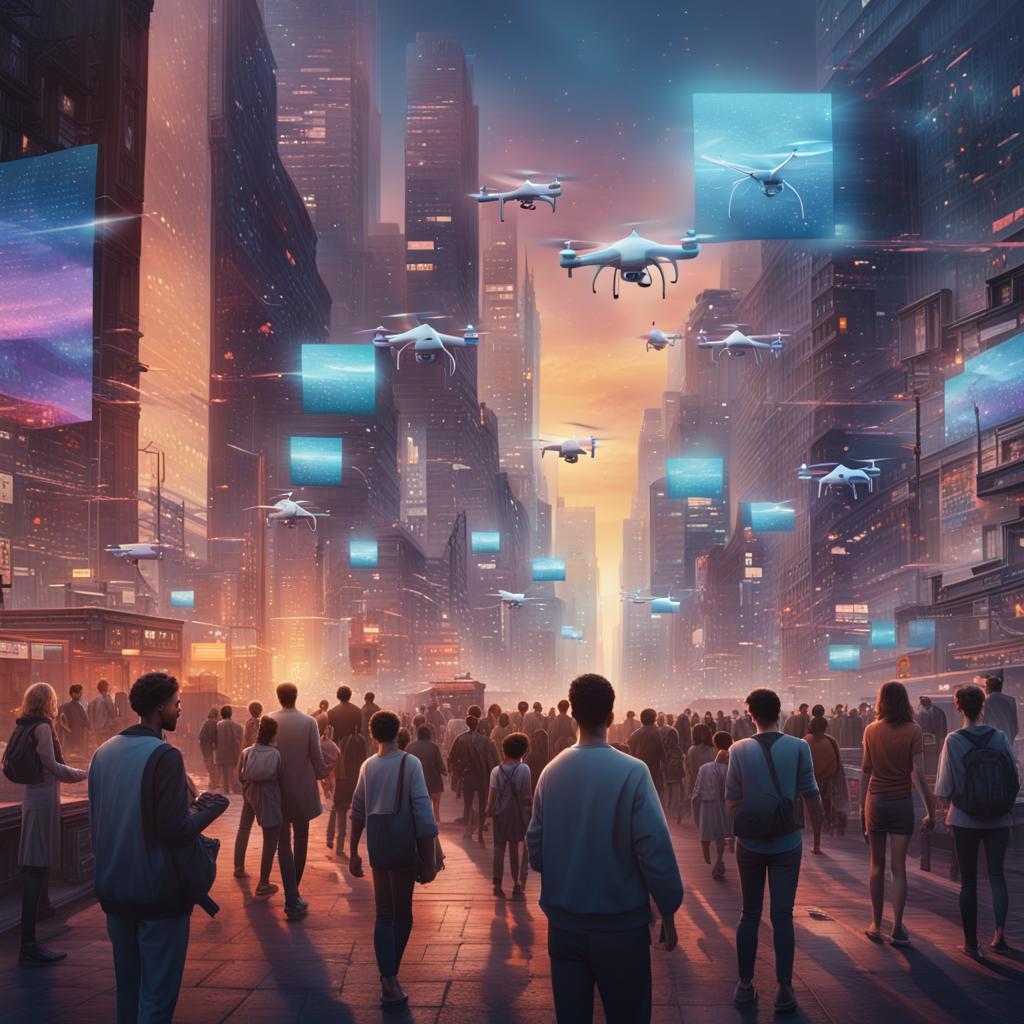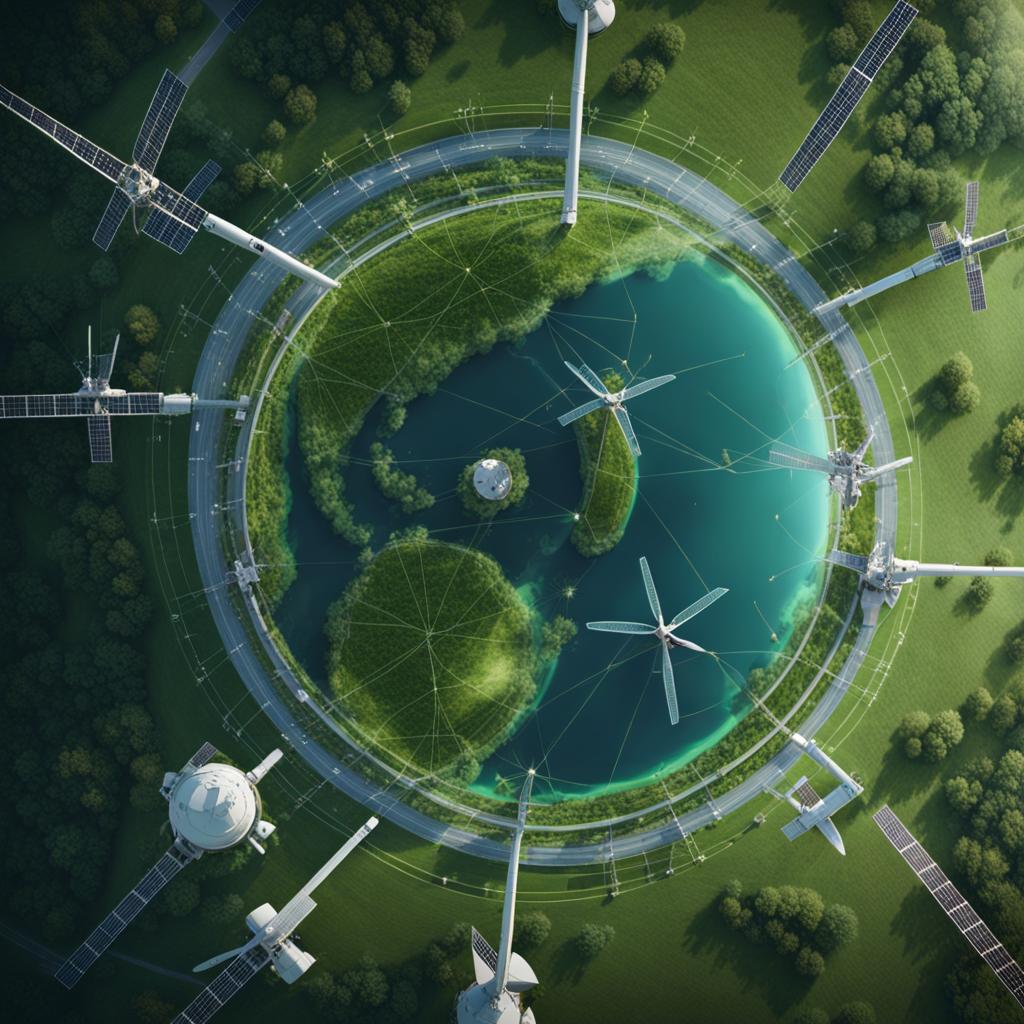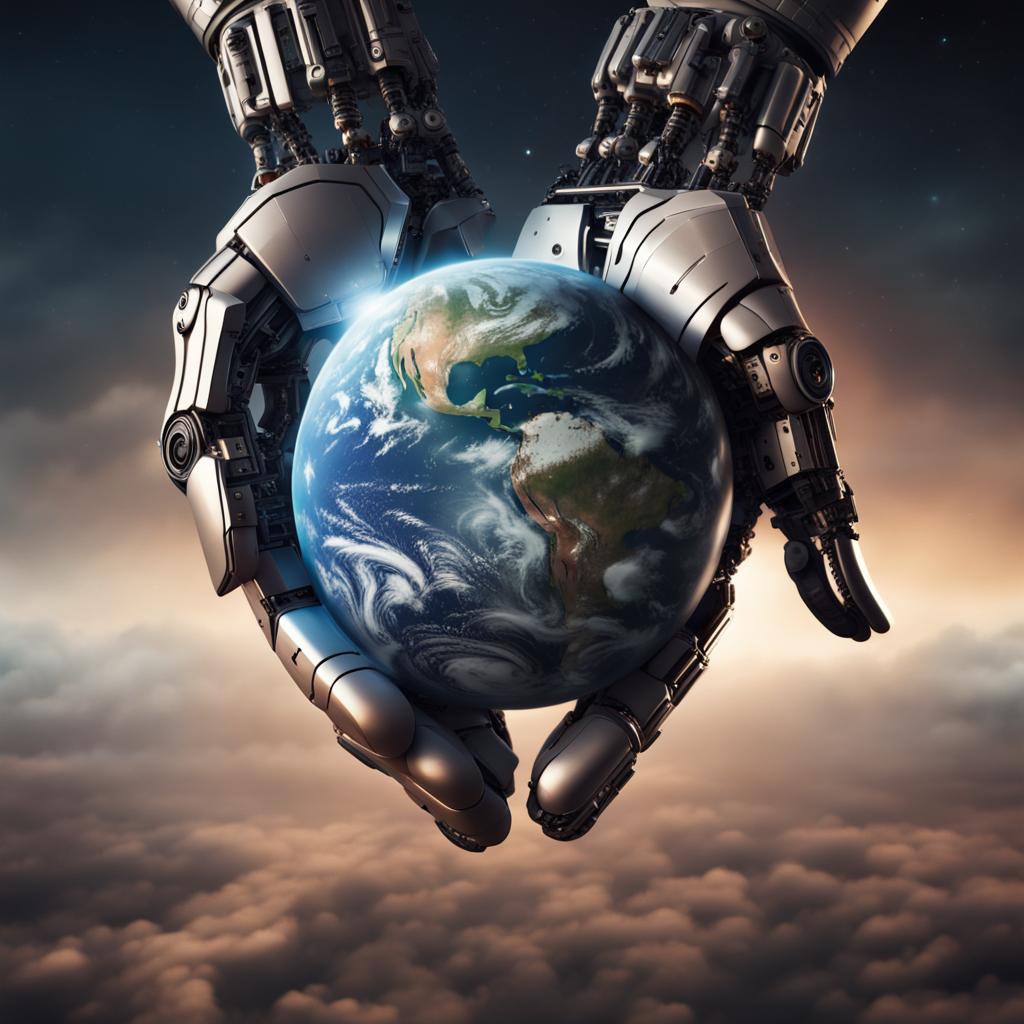The human experience is grappling with a relentless tide of complexity. From the daily deluge of information overload to the intricate tapestry of global challenges, our world is demanding more than ever before. This ever-escalating intricacy presents a crucial question: how do we effectively navigate this landscape and secure a better future? The answer, increasingly, points towards a powerful ally: Artificial Intelligence (AI).

Demystifying Daily Complexity
Imagine the daily juggling act we manage – navigating work, relationships, finances, health, and a constant stream of digital demands. Information overload, decision fatigue, and the sheer volume of tasks can be overwhelming. This isn’t just anecdotal; studies show a rise in anxiety and stress related to information overload and the constant pressure to stay connected. A 2022 study by the University of California, Irvine, found that individuals checking their phones more than 150 times a day experience higher levels of stress and anxiety compared to those who check less frequently.
This is where AI-powered tools like ChatGPT step in, offering a glimmer of hope in the face of this complexity. Imagine a personalized AI assistant that learns your preferences, proactively schedules appointments, optimizes daily routines, and filters incoming information based on your needs. ChatGPT, with its advanced language capabilities, could draft personalized emails, manage calendars, and even engage in meaningful conversations, offering companionship and emotional support.
Beyond individual lives, AI assistants can streamline bureaucratic processes that have become increasingly complex. Imagine navigating the labyrinthine world of healthcare insurance, where forms, authorizations, and claims can leave even the most organized individual in despair. An AI assistant could analyze your insurance plan, identify coverage options for specific procedures, and even help navigate the claims process, saving time and reducing stress.
Education, too, can benefit from AI-powered solutions. Imagine a virtual tutor that adapts to your individual learning style, provides personalized feedback, and even identifies areas where you might need additional support. AI-powered educational platforms can analyze vast amounts of data to create personalized learning paths, ensuring that each student receives the support they need to thrive.
The possibilities extend beyond individual lives, empowering communities and institutions to function more effectively. Smart agents could streamline bureaucratic processes, recommend educational resources, offer financial guidance, and even provide legal assistance. Imagine virtual lawyers simplifying legal procedures for everyday individuals, or coaches providing personalized fitness plans tailored to individual needs and goals. These “AI companions” empower individuals and communities to navigate complexity with greater confidence and efficiency, maximizing their potential and well-being.

Taming Global Conundrums with AI Solutions
Beyond personal spheres, the world faces daunting challenges – climate change, resource scarcity, pandemics, and political instability. Addressing these seemingly intractable issues requires not just solutions, but a deeper understanding of their interconnectedness and potential ripple effects. Here, AI emerges as a powerful tool for analysis, prediction, and resource optimization.
Consider the complex challenge of climate change. Traditional models struggle to capture the intricate interplay between factors like greenhouse gas emissions, deforestation, and ocean currents. AI, however, can analyze vast datasets of climate data, utilizing advanced algorithms to predict weather patterns with unprecedented accuracy and identify critical tipping points. This information can then be used to optimize renewable energy systems, develop targeted climate mitigation strategies, and even predict the potential impact of climate change on specific regions.
The healthcare sector is another domain where AI is making a profound impact. Imagine AI-powered healthcare networks that can track disease outbreaks in real-time, leveraging advanced data analysis to predict hotspots and facilitate rapid response. This could be crucial in containing pandemics like COVID-19, saving lives and minimizing economic disruption. Additionally, AI-driven diagnostic tools can analyze medical images with superhuman accuracy, aiding in early disease detection and improving patient outcomes.
Global challenges are not solely environmental or health-related. The political landscape is also becoming increasingly complex, with interconnected conflicts and diplomatic tensions posing significant risks. Imagine AI-driven diplomacy platforms that can analyze historical data and predict potential flashpoints, identifying areas of potential conflict and fostering international cooperation. Additionally, AI-powered translation tools can break down language barriers and facilitate communication between different cultures, promoting understanding and collaboration.
These are not mere dreams; AI initiatives are already tackling these challenges head-on.
In the healthcare sector, DeepMind’s AlphaFold2, for instance, is revolutionizing protein structure prediction, accelerating drug discovery and paving the way for new medical treatments. Babylon Health’s AI chatbot analyzes patient symptoms and suggests potential diagnoses, reducing pressure on healthcare systems and enabling early intervention. Zebra Medical Vision’s AI-powered software analyzes medical images with superhuman accuracy, aiding in early detection of diseases like cancer and pneumonia.
In the realm of climate change, Microsoft’s Planetary Computer analyzes vast datasets of climate data, predicting weather patterns with unprecedented accuracy and improving climate modeling efforts. IBM’s AI for Good initiative partners with organizations like The Nature Conservancy to optimize renewable energy systems and track deforestation in real-time.
And in other fields, the United Nations Office of Drugs and Crime utilizes AI to analyze social media data and identify potential criminal activity, enhancing security and preventing conflicts. The World Bank’s AI for Development initiative develops AI tools to predict natural disasters and facilitate faster humanitarian response. Deepomatic’s AI-powered translation platform breaks down language barriers and facilitates communication between different cultures, fostering understanding and collaboration.
Beyond these specific examples, the landscape of AI for good initiatives is constantly evolving. Researchers are developing AI tools to combat human trafficking, predict cyberattacks, and even personalize education for children in remote areas. These are just a few glimpses into the vast potential of AI to address some of the most pressing challenges facing our world.
However, it’s crucial to remember that the journey is not without its challenges. Ethical considerations, data privacy concerns, and potential biases in AI algorithms require careful attention and responsible development. As we navigate this complex landscape, collaboration between diverse stakeholders – scientists, policymakers, ethicists, and the public – is key to ensuring that AI serves as a force for good, empowering individuals and tackling global challenges in a responsible and sustainable manner.
The potential of AI to unravel the complexities of global problems and offer data-driven solutions is undeniably transformative.

Unveiling the Unreadable World with AGI
But complexity isn’t merely quantitative. The world is becoming increasingly “unreadable” in the sense that its interconnectedness renders long-term consequences unpredictable. The explosion of scientific knowledge, the ripple effects of economic decisions, and the potential challenges of space exploration cannot be fully grasped by human minds alone.
Consider the vast ocean of scientific knowledge. Each day, thousands of new research papers are published, adding to an already immense pile of information. Keeping up with even a specific field is a daunting task, let alone understanding the interconnectedness of different disciplines. This “knowledge explosion” makes it incredibly difficult to predict the long-term impacts of new discoveries, hindering our ability to make informed decisions.
Here’s where the hypothetical potential of Artificial General Intelligence (AGI) comes into play. AGI refers to AI systems capable of understanding and reasoning at a human-equivalent or even exceeding level. While still theoretical, AGI could be a game-changer. Imagine an AGI capable of analyzing vast datasets of scientific literature, not just reading individual papers but identifying connections, patterns, and potential breakthroughs across diverse disciplines. This could revolutionize scientific discovery, accelerating progress and allowing us to anticipate the potential consequences of new technologies before they are widely adopted.
Economic decision-making also suffers from an inability to fully grasp the intricacies of interconnected systems. A seemingly small change in interest rates can have cascading effects on global markets, while the long-term impacts of trade agreements or fiscal policies are often difficult to predict. Imagine an AGI simulating complex economic models, not just crunching numbers but understanding the underlying social, political, and environmental factors at play. This could enable policymakers to make more informed decisions, mitigating unintended consequences and fostering sustainable economic growth.
The challenges don’t stop there. Imagine the complexities of space exploration. Sending humans to Mars requires not just technological prowess but also the ability to predict and manage risks across numerous domains, from resource allocation to psychological well-being of astronauts. Imagine an AGI analyzing vast datasets of space exploration data, predicting potential hazards, optimizing resource allocation, and even providing psychological support to astronauts on long-duration missions. This could dramatically improve the safety and success of space exploration endeavors, pushing the boundaries of human civilization further than ever before.
Of course, concerns regarding AGI’s misuse or unintended consequences are valid. The potential for an AI surpassing human intelligence raises ethical and existential questions that must be addressed with rigorous philosophical and scientific exploration. We must ensure that AGI is developed and deployed responsibly, with safeguards in place to mitigate potential risks. However, dismissing the potential of AGI solely because of fear would be akin to shutting our eyes to a powerful tool simply because it carries risks. Responsible development and rigorous ethical frameworks are crucial, but fear must not paralyze us.
Harnessing the Power, Mitigating the Risks
AI is not a magic bullet, but it is a powerful tool with the potential to revolutionize how we navigate personal and global complexities. From daily assistants to global problem-solvers, AI can empower individuals, optimize systems, and offer insights into the previously “unreadable.” While acknowledging the potential risks, we must remember that the benefits of AI, used responsibly and ethically, far outweigh the pitfalls. We stand at a pivotal moment, where embracing AI can unlock a future brimming with possibility. Let us choose wisely, navigate responsibly, and unlock the true promise of AI for a brighter tomorrow.
Generated by Bard from the initial prompt:
Write a 3000-words essay explaining the “true promise” of AI and emphasising that the need for AI directly derives from the necessity to tackle the increasing complexity of our world. The essay will have 3 parts:
A. The complexity of our daily lives. Explain how and why it has become increasingly difficult to handle our daily lives, and describe how AI can help. Develop a few concrete examples on the benefits of using AI-generation tools (genAI) such as ChatGPT in our daily lives. Describe with examples how smart agents, smart assistants, personal virtual lawyers or virtual coaches could one day empower individuals in better handling the complexities of their daily lives.
B. The complexity of global problems. Explain some of the biggest global problems our world is facing, and argue that AI is our best chance to solve them, with concrete examples.
C. The rise of AGI. Insist on the fact that this world is not “readable” anymore (for example, nobody can keep up with the progress of knowledge and science, nobody can predict the global effects of wars or monetary decisions) and will be increasingly complex (nobody can assess the long term consequences of space colonisation). Argue that AGI can be a powerful tool to give us a better understanding of our world.
In the conclusion, detail the potential risks of AI, while still arguing that the potential benefits of AI clearly overcome its possible pitfalls.
Later completed with requests to expand the text by adding more details and examples.
Bold wording added manually.
Images: StableDiffusion
